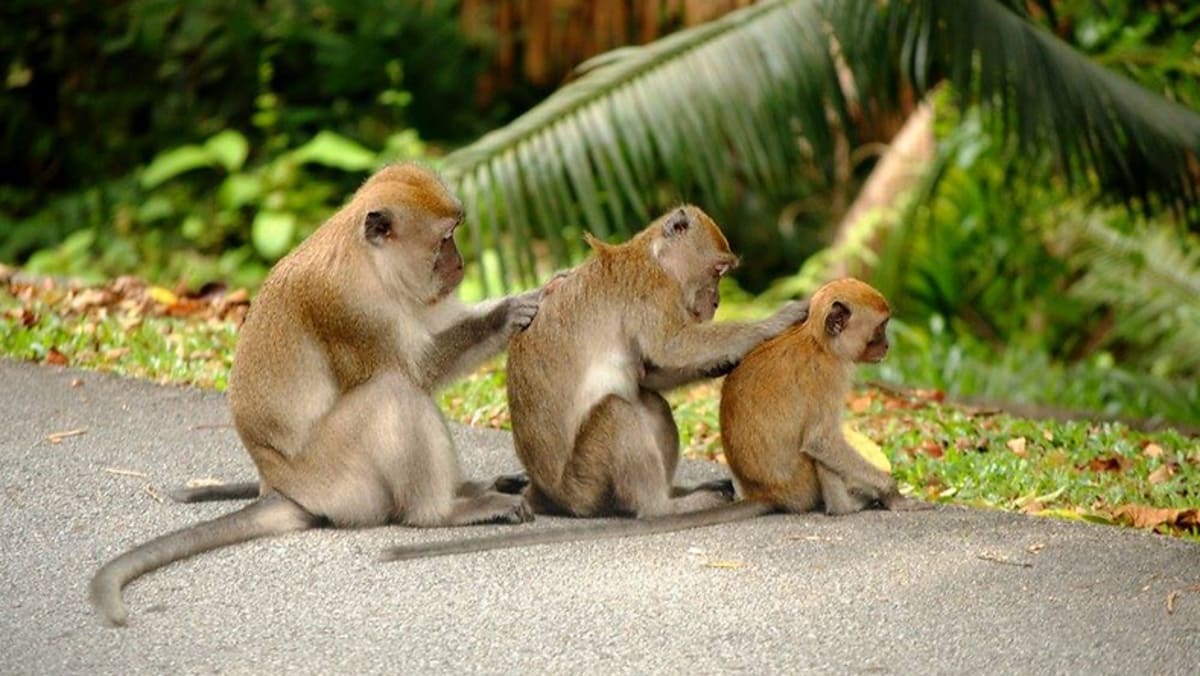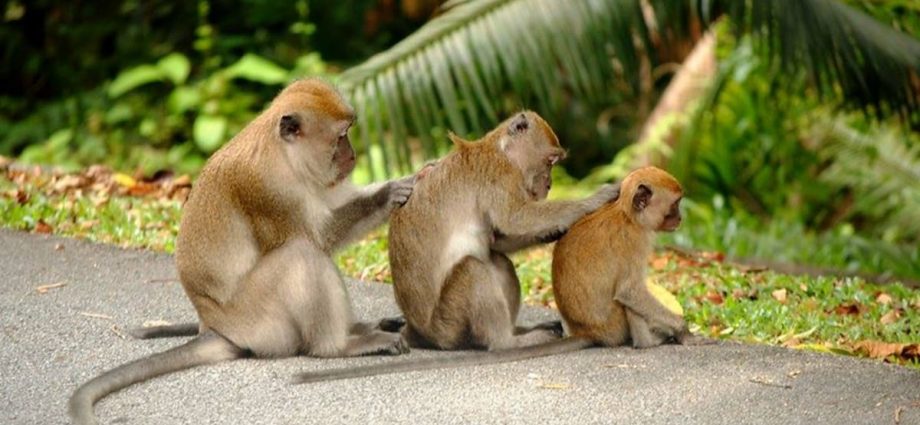
WHAT TO DO WHEN YOU SEE MONKEYS?
If you see a monkey in a nature spot, most of the time, it will not bother you if you do not disturb it, said Dr Ang.
“If you keep a safe distance, walk away and continue on your path, that’ll be fine,” she said.
“But if the monkeys are in your path, you have to see whether there’s another route that you can take or you might need to wait for them to disperse.”
Those who are in a rush, however, may make sounds to alert the monkeys, so that the animals are not surprised by their presence. They would usually disperse when they hear claps, she added.
Dr Ang also urged people who are visiting natural areas not to bring plastic bags, which the monkeys associate with food, or drinks in their hands.
“If we are not equipped with the knowledge to know how to interact with wildlife, that’s when we might inevitably or accidentally attract them into urban areas or our homes,” she said.
WHAT TO DO IF A MONKEY TAKES YOUR CAR KEYS?
In general, if a monkey takes food items, “you can forget about it”, Dr Ang said.
But if the items are not food-related, there is value in patience.
“If it’s not food-related, like your car keys or phone or your wallet, they might take it and bring it up to a tree. Wait for them to drop the items,” she said.
“They might be chewing a bit of your wallet, but they won’t be eating it.”
NEGATIVE EXPERIENCES DO NOT HAPPEN OFTEN
While they have made the headlines, negative behaviours by monkeys do not happen that often, Dr Ang said.
“Ninety-nine per cent of the time … you read about behaviours that are quite negative, (but) it only happens maybe less than 5 per cent on the ground,” she said.
This is because the monkeys usually make the news only when there has been an incident or accident, she added.
Monkeys have made headlines in Singapore for snatching bags and entering homes to take food, but Dr Ang said that she hopes that when people talk about the primates, they do not use adjectives like “naughty, mischievous, cheeky and aggressive”.
MISCONCEPTION ABOUT FOOD SUPPLY
People may have the misconception that monkeys may be finding other food sources because they do not have enough in the forest, Dr Ang said.
“The monkeys have sufficient food in the forest and the food that they eat will be plants. They could also take in small animals like lizards or bird eggs,” she said.
However, it may be more efficient for them to eat food meant for humans.
“Because the food that humans eat is full of high calories and energy content … if they were to take those food items, they would get their calorie intake for the day within just a short amount of time,” she said.
“So if you were to leave food out there unattended or trash bins are not closed properly, then the animals would stay and get those food (items).”
HOW TO DEAL WITH BABY MONKEYS?
Dr Ang warned that people should watch where the baby monkeys are, and advised against walking too close to them.
Adding this is like humans being protective of babies, she said: “When they’re infants, of course the adults will be more protective.”

